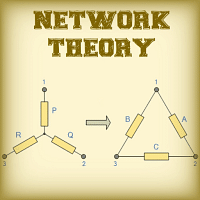Electrical Engineering (EE) Exam > Electrical Engineering (EE) Questions > Can you provide the subject-wise weightage fo...
Start Learning for Free
Can you provide the subject-wise weightage for the GATE EE exam?
Most Upvoted Answer
Can you provide the subject-wise weightage for the GATE EE exam?
Subject-wise Weightage for GATE EE Exam:
The Graduate Aptitude Test in Engineering (GATE) is an important exam for electrical engineering (EE) students aspiring for higher education or job opportunities in the field. Understanding the subject-wise weightage can help candidates plan their preparation effectively. Here is a detailed breakdown of the subject-wise weightage for the GATE EE exam:
1. Engineering Mathematics:
- This section carries a weightage of around 15% in the exam.
- Key topics include linear algebra, calculus, differential equations, complex variables, probability, and statistics.
- Candidates should focus on calculus, numerical methods, and linear algebra as they constitute a significant portion of the questions.
2. Electric Circuits:
- Electric circuits hold a significant weightage of approximately 15% in the GATE EE exam.
- Important topics include network graph, KCL, KVL, transient response, steady-state response, and two-port networks.
- Candidates should thoroughly understand basic circuit analysis techniques, network theorems, and resonance.
3. Electromagnetic Fields:
- Electromagnetic fields carry a weightage of around 10% in the exam.
- Key topics include Gauss's law, Coulomb's law, Biot-Savart law, Ampere's law, Faraday's law, and Maxwell's equations.
- Candidates should focus on understanding the concepts of electrostatics, magnetostatics, and electromagnetic waves.
4. Signals and Systems:
- This section holds a weightage of approximately 10% in the GATE EE exam.
- Important topics include Fourier series, Fourier transform, Laplace transform, Z-transform, and basic concepts of signals and systems.
- Candidates should have a strong foundation in signal representation, convolution, and system analysis.
5. Electrical Machines:
- Electrical Machines carry a weightage of around 15% in the exam.
- Key topics include transformers, DC machines, induction machines, and synchronous machines.
- Candidates should focus on understanding the working principles, characteristics, and applications of various electrical machines.
6. Power Systems:
- Power Systems hold a significant weightage of approximately 15% in the GATE EE exam.
- Important topics include power generation, transmission, and distribution, as well as power factor correction and economic operation.
- Candidates should thoroughly understand power system analysis, stability, and protection concepts.
7. Control Systems:
- This section carries a weightage of around 10% in the exam.
- Key topics include mathematical modeling of control systems, transfer function, block diagrams, and feedback control.
- Candidates should focus on understanding the concepts of stability, steady-state errors, and control system design.
8. Electrical and Electronic Measurements:
- Electrical and Electronic Measurements hold a weightage of approximately 10% in the GATE EE exam.
- Important topics include measurement techniques, measurement errors, bridges, and transducers.
- Candidates should have a strong understanding of measurement methods, accuracy, and calibration.
9. Power Electronics and Drives:
- Power Electronics and Drives carry a weightage of around 10% in the exam.
- Key topics include power semiconductor devices, AC to DC converters, DC to DC converters, DC to AC converters, and electric drives.
- Candidates should focus on understanding the working principles, characteristics
The Graduate Aptitude Test in Engineering (GATE) is an important exam for electrical engineering (EE) students aspiring for higher education or job opportunities in the field. Understanding the subject-wise weightage can help candidates plan their preparation effectively. Here is a detailed breakdown of the subject-wise weightage for the GATE EE exam:
1. Engineering Mathematics:
- This section carries a weightage of around 15% in the exam.
- Key topics include linear algebra, calculus, differential equations, complex variables, probability, and statistics.
- Candidates should focus on calculus, numerical methods, and linear algebra as they constitute a significant portion of the questions.
2. Electric Circuits:
- Electric circuits hold a significant weightage of approximately 15% in the GATE EE exam.
- Important topics include network graph, KCL, KVL, transient response, steady-state response, and two-port networks.
- Candidates should thoroughly understand basic circuit analysis techniques, network theorems, and resonance.
3. Electromagnetic Fields:
- Electromagnetic fields carry a weightage of around 10% in the exam.
- Key topics include Gauss's law, Coulomb's law, Biot-Savart law, Ampere's law, Faraday's law, and Maxwell's equations.
- Candidates should focus on understanding the concepts of electrostatics, magnetostatics, and electromagnetic waves.
4. Signals and Systems:
- This section holds a weightage of approximately 10% in the GATE EE exam.
- Important topics include Fourier series, Fourier transform, Laplace transform, Z-transform, and basic concepts of signals and systems.
- Candidates should have a strong foundation in signal representation, convolution, and system analysis.
5. Electrical Machines:
- Electrical Machines carry a weightage of around 15% in the exam.
- Key topics include transformers, DC machines, induction machines, and synchronous machines.
- Candidates should focus on understanding the working principles, characteristics, and applications of various electrical machines.
6. Power Systems:
- Power Systems hold a significant weightage of approximately 15% in the GATE EE exam.
- Important topics include power generation, transmission, and distribution, as well as power factor correction and economic operation.
- Candidates should thoroughly understand power system analysis, stability, and protection concepts.
7. Control Systems:
- This section carries a weightage of around 10% in the exam.
- Key topics include mathematical modeling of control systems, transfer function, block diagrams, and feedback control.
- Candidates should focus on understanding the concepts of stability, steady-state errors, and control system design.
8. Electrical and Electronic Measurements:
- Electrical and Electronic Measurements hold a weightage of approximately 10% in the GATE EE exam.
- Important topics include measurement techniques, measurement errors, bridges, and transducers.
- Candidates should have a strong understanding of measurement methods, accuracy, and calibration.
9. Power Electronics and Drives:
- Power Electronics and Drives carry a weightage of around 10% in the exam.
- Key topics include power semiconductor devices, AC to DC converters, DC to DC converters, DC to AC converters, and electric drives.
- Candidates should focus on understanding the working principles, characteristics
Attention Electrical Engineering (EE) Students!
To make sure you are not studying endlessly, EduRev has designed Electrical Engineering (EE) study material, with Structured Courses, Videos, & Test Series. Plus get personalized analysis, doubt solving and improvement plans to achieve a great score in Electrical Engineering (EE).

|
Explore Courses for Electrical Engineering (EE) exam
|

|
Similar Electrical Engineering (EE) Doubts
Can you provide the subject-wise weightage for the GATE EE exam?
Question Description
Can you provide the subject-wise weightage for the GATE EE exam? for Electrical Engineering (EE) 2024 is part of Electrical Engineering (EE) preparation. The Question and answers have been prepared according to the Electrical Engineering (EE) exam syllabus. Information about Can you provide the subject-wise weightage for the GATE EE exam? covers all topics & solutions for Electrical Engineering (EE) 2024 Exam. Find important definitions, questions, meanings, examples, exercises and tests below for Can you provide the subject-wise weightage for the GATE EE exam?.
Can you provide the subject-wise weightage for the GATE EE exam? for Electrical Engineering (EE) 2024 is part of Electrical Engineering (EE) preparation. The Question and answers have been prepared according to the Electrical Engineering (EE) exam syllabus. Information about Can you provide the subject-wise weightage for the GATE EE exam? covers all topics & solutions for Electrical Engineering (EE) 2024 Exam. Find important definitions, questions, meanings, examples, exercises and tests below for Can you provide the subject-wise weightage for the GATE EE exam?.
Solutions for Can you provide the subject-wise weightage for the GATE EE exam? in English & in Hindi are available as part of our courses for Electrical Engineering (EE).
Download more important topics, notes, lectures and mock test series for Electrical Engineering (EE) Exam by signing up for free.
Here you can find the meaning of Can you provide the subject-wise weightage for the GATE EE exam? defined & explained in the simplest way possible. Besides giving the explanation of
Can you provide the subject-wise weightage for the GATE EE exam?, a detailed solution for Can you provide the subject-wise weightage for the GATE EE exam? has been provided alongside types of Can you provide the subject-wise weightage for the GATE EE exam? theory, EduRev gives you an
ample number of questions to practice Can you provide the subject-wise weightage for the GATE EE exam? tests, examples and also practice Electrical Engineering (EE) tests.

|
Explore Courses for Electrical Engineering (EE) exam
|

|
Suggested Free Tests
Signup for Free!
Signup to see your scores go up within 7 days! Learn & Practice with 1000+ FREE Notes, Videos & Tests.

























